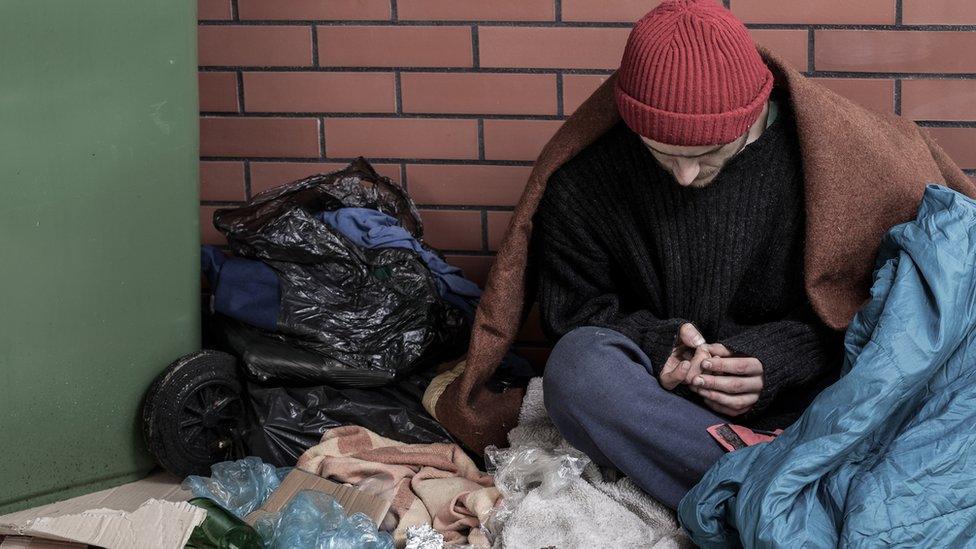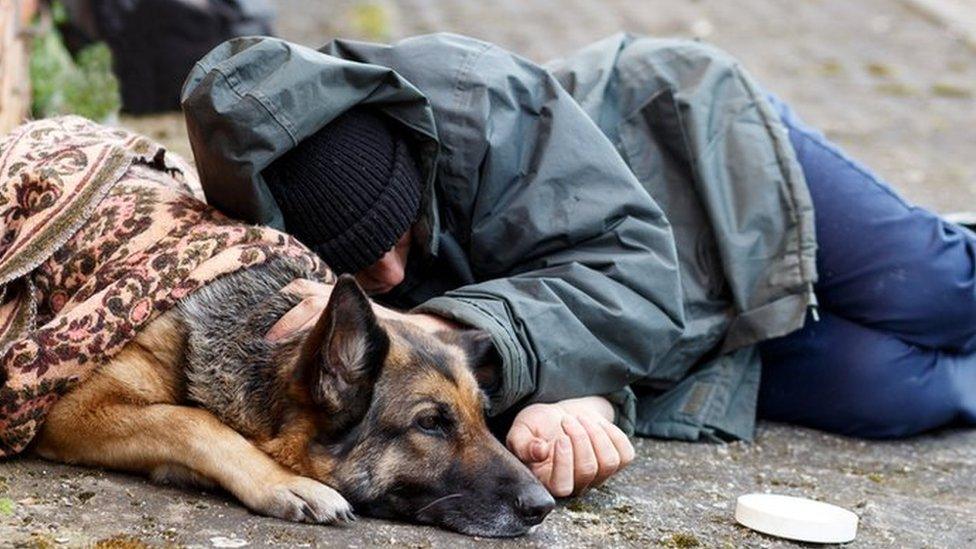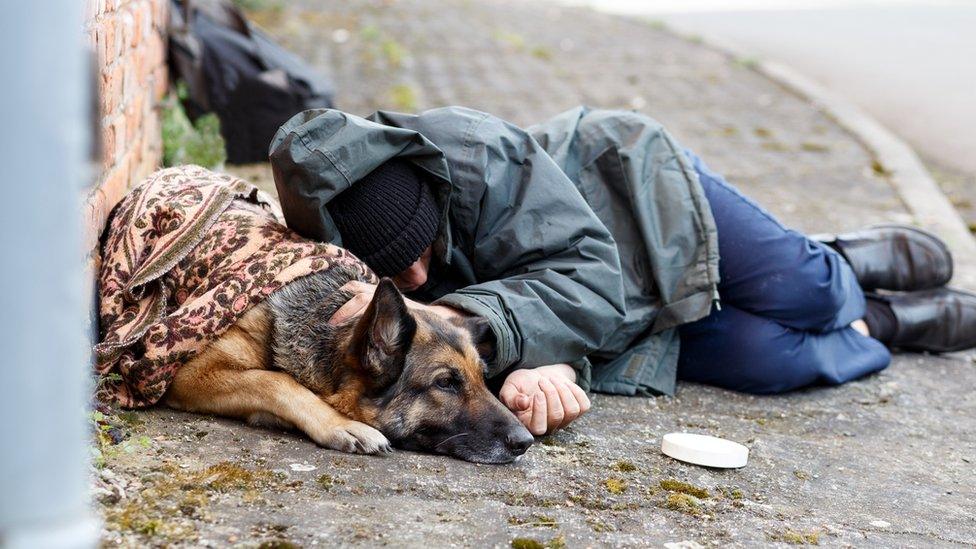New homelessness law: What impact will it have?
- Published

Councils will obliged to help people at risk of being homeless much earlier
A new law will come into effect obliging councils to step in and help people threatened with losing their home within 56 days. What difference will it make?
More than 114,000 households in England turned to councils for help in 2015-16 because they were losing their home.
A new law proposed by Conservative MP Bob Blackman has now been supported by the government, as figures show the number of households accepted as homeless or in priority need has been rising since 2009.
The Homelessness Reduction Bill will oblige councils to start assessing someone at risk of being made homeless 56 days before losing their home. Currently, the threat of homelessness is defined as starting 28 days before the person loses their home.
What happens at the moment?
The number of homelessness "decisions" by councils fell dramatically from 2002.
This was when the government began actively encouraging local authorities to help people before they lost their home by giving them support in other ways, such as arranging mediation with a landlord or family member. That way a homelessness application was only a last resort.
The result was a continual decline until 2010, when the numbers started rising again. Shelter believes the increase is down to the "challenging" housing market and welfare reform.
In 2015-16, some 115,000 households applied to their council for homelessness assistance, 11% more than in 2010-11.
Of those, 58,000 were accepted as homeless and in "priority need", 6% up on the year before.
Will the new law make a difference?
Experts believe so, but say more is needed.
Dominic Williamson, from the homelessness charity St Mungo's, told a committee of MPs: "Of all the forms of homelessness, sleeping on the streets is not only the most visible, but also the most damaging.
"We see rough sleeping as an emergency in any situation and we also know it not only has a long term impact on people, but it puts people in a position where they are at immediate risk of violence and being attacked, and we know that people who are sleeping rough die on our streets.
"As the Bill stands, some tweaks may be necessary to it, but overall this would have an enormous impact on the flow of people on to our streets, and that is why we are so keen to welcome it."
The government is promising an additional £48m over three years to help councils start to intervene earlier. This is on top of £80m a year they already have to prevent homelessness.
The housing charity Shelter says it will need to be accompanied by more help for people to find somewhere else to live and by building more affordable homes.
How many people will these changes help?
It is not possible to say for certain.
At first, homelessness figures will probably rise.
This is because more people will be recorded as asking for help, as they will approach the council earlier on.
In Wales, a similar measure was introduced in 2015-16, which saw a large proportion of people prevented from becoming homeless.
However, the encouragement that was applied in England was not policy in Wales before.
And there is scepticism among local authorities as to whether the effects will be the same in England, particularly in cities like London.
In evidence to the Communities and Local Government Committee, Westminster Council said: "London faces unique challenges and has the biggest homelessness problem in the country.
"Therefore, in order to make the legislation work across the whole country, a model primarily based on the Welsh legislation cannot be directly transposed here without some consideration of the differing housing markets in different parts of the country."
- Published25 January 2017

- Published21 December 2016

- Published28 October 2016